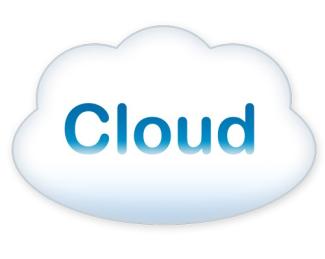
Is My Data in the Cloud Safe?
As our lives become more intertwined online, it may be only a matter of time before all of our important data is stored in this vast “cloud” of bits and bytes somewhere on a far away hard drive. Most people already use tools like online banking and bill pay, e-tax filing, document storage vaults, and other financially and data sensitive activities. Around here in Seattle and the tech-centric Pacific Northwest we even make payments using our smart phones. Businesses and individuals alike are moving away from metal file cabinets to computer servers and vast storage, for convenience and better data management. Is it safe? Technically, it could be a lot safer than storing physical documents. But, there are some things you should consider with online or cloud based data storage.
The potential problems of storing records electronically are often discussed with plenty of advice (and opinions) given for proper data backup. Less discussed, primarily because it is relatively new territory, is the notion of “cloud” recordkeeping where records are entrusted to a 3rd party source via the internet. The subject is already receiving a lot of attention and the debate on the viability of recordkeeping in the cloud is far from settled. With Microsoft in Redmond, Google in Kirkland, and Amazon in Seattle, the cutting edge of this technology is right in our own back yard.
Weighing the Risks
An increasing number of people and businesses are trying to move towards a paperless existence at least to the extent where non-legal or non-essential documents no longer occupy yards of file space and for the purpose of easy retrieval of data and information. Computer hard drives and servers have become the new file drawer system for most people, and now, as more transactions and communications are conducted over the internet, the cloud is becoming an extended file drawer.
To a certain extent, you are already storing sensitive data in the cloud. Emails are records that reside in the cloud. Retail and banking relationships are established in the cloud where account information and invoices are stored. Data uploaded to business partners through collaborative tools on the internet is also stored. Certainly any information that is transmitted via your most website is captive in the cloud, somewhere.
Information technology is rapidly evolving. This is not just a techie fact but is now mainstream. The use of data encryption makes it virtually impossible for your data to be stolen from the cloud. When data is stored in the online, you no longer control it. You may sign a privacy agreement with a vendor, but they generally aren’t responsible for your information should their servers go down, or your data gets lost. Information technology has come a long way but it still is not 100% reliable.
Most IT experts agree that records that remain in the cloud are highly susceptible to loss or becoming inaccessible due to no fault of your own. Server outages, hacking assaults and any incident that caused your own internet to go down can happen at any time which would render your records unavailable. To minimize any of these things happening, we would opt for more robust solutions like Google Drive, DropBox, Carbonite, Microsoft Drive, etc.
Proceed with Caution
If you are considering using any online service for the purpose of recordkeeping, data storage or transactions, keep a backup of all sensitive documents safely stored in secure location. Legal documents, such as wills, trusts, divorce decrees, or contracts should be backed up securely before sent off for storage or archiving in the cloud. Documents required to be retained for any period of time should be kept in hard copy, either on site or in a secured offsite location.
You should be able to rest easy with your data online, but it is highly recommended that you still keep physical records of your most important legal and financial information. Ideally, your critical financial data should be backed up to a couple of alternative storage devices such as a CD, USB drive, or a portable hard drive with at least one being stored in a separate, secure location. Moving data and records to the cloud is here to stay but in the end, you own your data and need to be responsible for it.
*This content is developed from sources believed to be providing accurate information. The information provided is not written or intended as tax or legal advice and may not be relied on for purposes of avoiding any Federal tax penalties. Individuals are encouraged to seek advice from their own tax or legal counsel. Individuals involved in the estate planning process should work with an estate planning team, including their own personal legal or tax counsel. Neither the information presented nor any opinion expressed constitutes a representation by us of a specific investment or the purchase or sale of any securities. Asset allocation and diversification do not ensure a profit or protect against loss in declining markets.


